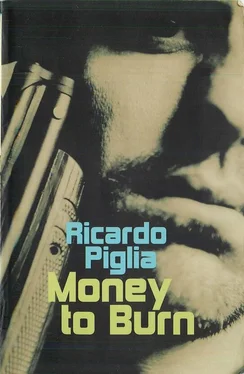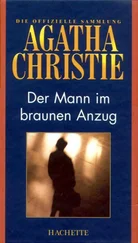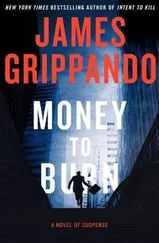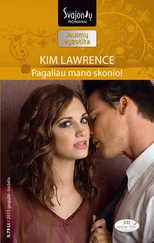It was through this very club that two farmers from the eastern region of the country came to sublet the flat from the night-club owner. The place itself was in the city centre, and the rent was kept low, while the flat contained everything necessary for a proper bachelor pad. But this friendship born of regular night-time contact soon turned the apartment into a place for the country girl to stay in: a favour{12} that the new owners of the flat generously afforded the night-club owner.
Later on, as if by chance, the deal became more complicated and the flat generated an increasing number of keys which gave access to increasing numbers of casual users. The previous evening, for example, one of the waiters from the club had stayed there and had left behind all his documents, some personal possessions and a few clothes. The more regular occupants of the flat on the corner of Julio Herrera and Obes Streets turned a blind eye to its use for occasional nocturnal encounters. No reason to be surprised, then, at this chain of circumstances, for in this multiplication of actual and apparent tenants and of owners, you'd find the keys to the series of errors that terminated in bringing in the boys from Buenos Aires. So now it's out in the open: by the scanty light in the dingy corners of a cabaret strange friendships form, which have a tendency to evaporate in the clear light of day.
Miss Lucia noticed two men changing the licence plates on a Studebaker parked close to the corner and it seemed a little strange to her. One held a screwdriver, or perhaps it was only a penknife, she couldn't see too clearly at that distance, and was crouching to loosen the screws on the metal plate while the other, a big blond fellow with a bandage around his neck, held the new one in place. The woman slept in a shed on the patch of land at the back of the bakery and today had been awoken by the dawn light. She opened up the shop and had to put on the lights because it was still dark. From the window, whilst she sipped her mate , she became absorbed in watching the figures of the two men who, squatting next to one another, were cracking jokes and larking about. Or thaťs what Lucia surmised, because never for an instant did she see them look either concerned or stealthy, or even apprehensive over being caught out. Rather, they seemed to be carrying out their project as easily as they might have changed a car tyre.
Lucia was very observant, her job in the bakery had developed her particular aptitude for observation, almost a sixth sense (she would later declare), because she had the ability to remember the face of the most casual customer if she happened on them in even the remotest city street, and several days later. But she needed no special powers of observation to understand what was happening on the corner with those guys fiddling about with the car plates on the Studebaker. Everyone knew each other in this district of Montevideo and it was highly exceptional for anything out of the ordinary to happen, for inexplicable occurrences to take place. In all the years she'd assumed a post in front of the shop, there'd only ever been one man who had had a car accident and he died on the pavement, all of a sudden and of a heart attack. He just lay there on the street, his mouth wide open, unable to breathe, and attempted to cover his face with a white handkerchief. Lucia approached when the man was already dead and stayed alone with the body in front of the bakery until the owner of the corner chemist's shop appeared and called an ambulance.
This time matters were different, and there was the chance to intervene before it got too late. That was why she lifted the receiver and vacillated, for she didn't like getting mixed up in other people's lives, but she experienced a weird emotion, as though an important matter had been entrusted into her hands, and called the police. As soon as she did so, she switched off the bakery light and remained stock still there, just staring out.
She again had the sensation she called 'the evil temptation', an impulse that sometimes caused her to be hurtful or to let someone else be hurtful to another, a temptation she had had to struggle against since her earliest childhood. For example, when the man had the heart attack, she remained silent, watching him die, and always thought that if she had reacted rather than allow herself to be swept along by the curiosity that had paralysed her, while the man with the livid face struggled and suffocated, spread eagled on the flagstones of the pavement, the man with the handkerchief over his face could have been saved. Now, in contrast, she acted almost without hesitation and, after lodging her complaint, settled herself to await the outcome. It looked like nothing more than a straightforward car heist, and she could never have envisaged what she was about to witness.
You could monitor the whole street, in this quiet district of Montevideo, just by looking through the plate glass window. 'Better than the cinema,' Miss Lucia Passero was to say later on.
A real orgy of blood (according to the papers) thus began in Uruguay on Wednesday, 4 November 1965, when from the bakery located on the corner of Enriqueta Comte and Riqué Streets, almost on Marmarajá Street, it was noted that on the opposite side of the road a red Studebaker was parked, inside which two men were sitting and smoking calmly.
Moments later a second vehicle appeared — a black Hillman — from which another couple of unknown men got out, and handed a package to the former arrivals. The Hillman departed with its occupants and stopped on the street corner. It could then be observed that the two men emerged from the Studebaker and gave themselves the task of setting about exchanging the licence plates for new ones contained in the package of which they had taken delivery a few seconds earlier.
Two policemen appeared at the corner and approached the Studebaker. The first person to catch sight of them in the mirror was Crow Mereles.
'It's the cops,' he said.
The Crow opened the car door and leaned on the mudguard, smoking, serene, as the two policemen approached. One was black, or rather half-caste, with flat features and tightly curled hair, and the other was a fat guy, exactly like every other fat cop in the city. There were lots of policemen who let themselves go and who got breathless if ever they ran, and whose only useful purpose was to kick the shit out of the poor sods who'd already been brought to the ground and were now lying there, defenceless, in the street; aiming their blows to the kidneys with the full weight of their enormous bodies behind them. But a negro — Crow had never seen a black cop. Or maybe they had them in Brazil. But then he'd never been to Brazil. And in North America, of course, the black cops in films from the United States used to kill other black North Americans all over the streets of the Bronx. That phrase formed in his head like a refrain while he allowed the two men to approach him. They were going to ask him for his documents. Mereles smiled amiably. The black was a couple of paces behind, and the fat guy approached them first.
'Leave him to me,' said Gaucho Dorda.
The fat policeman saluted him by tipping the front of his peaked cap with his index finger, and looked inside the car with a scowl. The Gaucho loathed pigs above all else, and before the guy had time to draw breath, he fired a shot into his chest. The man fell to the ground but did not die immediately, bawling, searching for cover under the edge of the kerb. The other policeman, the black, jumped out of the way, then crouched behind the car and began firing.
'Cancela,' the black told him, 'call Headquarters.'
Cancela must have had a walkie-talkie, but he was in no state to use it. He was lying in the gutter (Lucia could see him perfectly clearly), his chest stained with blood, breathing, or rather snoring — it sounded like — with difficulty, shifting his hand to cover the wound, to try, perhaps, to staunch the haemorrhage that was filling his throat with blood.
Читать дальше












